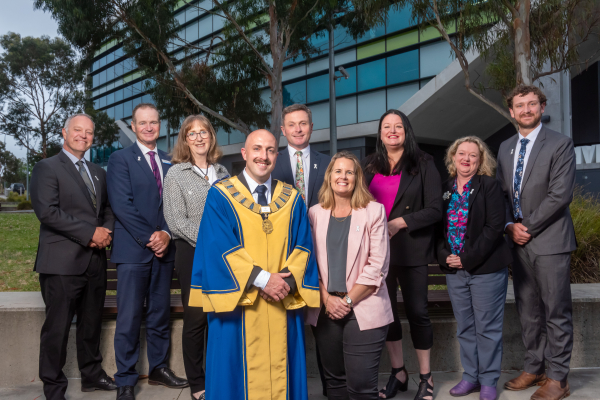A $1 million donation from Queensland philanthropist Clive Berghofer AM will help boost a wide-ranging research program at QIMR Berghofer into the global pandemic, COVID-19.
The research will be aimed at laboratory screening of existing and potential new drugs, developing a test to detect who has immunity to the virus, and understanding why some patients become severely sick while others develop only mild symptoms.
QIMR Berghofer’s Acting Director and CEO, Professor David Whiteman AM, said the Institute’s biosecurity facility put it in an ideal position to join Australian and international scientists in the urgent search for new drugs.
“We have a world-class biosecurity research facility at QIMR Berghofer, which allows us to conduct exactly this sort of work into dangerous infectious diseases,” Professor Whiteman said.
“This $1 million funding boost from Clive will allow us to set up that facility for a wide-ranging research program into COVID-19.
“Our scientists will grow the virus in this facility. They will then work with collaborators at other Queensland and Australian research organisations and biotech companies to rapidly screen potential new anti-viral drugs, and existing drugs that are approved for other uses, in the laboratory.”
Professor Whiteman said the Institute would also work towards developing a test to identify people with immunity against the virus.
“We know that a proportion of people with COVID-19 only experience very mild symptoms and some do not even know they’ve been infected,” he said.
“At the moment, no test can tell us if someone has previously been infected and has recovered, only if someone is currently infected. It looks likely that those who have recovered will have immunity against reinfection. This is important to know, since immune people can re-join the workforce and help support the economy.
“Our researchers will work towards developing a test that shows who has been infected and recovered so that those people, in particular doctors and nurses, can be at the front line of the response.”
Professor Whiteman said the Institute also had several clinician-scientists with expertise in treating infectious diseases who would play a key role in the Institute’s research efforts.
“Working at the coal-face of Queensland hospitals gives our clinician-researchers the opportunity to collect patient samples that can be tested in our laboratories,” he said.
“These samples will help us to understand how the human body responds to this disease, and why some people become severely unwell, while others develop mild or no symptoms. This research is part of a worldwide effort to understand how this disease works.”
QIMR Berghofer’s COVID-19 research will also include:
- Working to understand the virus’s effect on the lungs and respiratory system;
- Investigating the immune response to COVID-19 in cancer patients; and,
- Trying to understand the genetics of how the human body responds to COVID-19.
Queensland’s Health Minister, Steven Miles, said QIMR Berghofer was well placed to conduct research into COVID-19.
“QIMR Berghofer was established in 1945 to research infectious diseases, and now, 75 years later it is supporting the global research effort to try to end this pandemic,” Mr Miles said.
“This disease has already taken thousands of lives and, tragically, more lives will be cut short in the weeks and months ahead.
“On behalf of all Queenslanders, I want to thank Clive Berghofer for helping to kick-start this research and boosting the worldwide effort to find new drugs.”
The $1 million in funding comes on top of $60.1 million Mr Berghofer has already donated to the Institute.
Mr Berghofer has urged others to get behind the global research effort into COVID-19.
“I wouldn’t have given $60 million to QIMR Berghofer to date if I didn’t have faith in their scientists,” Mr Berghofer said.
“QIMR Berghofer is one of the biggest medical research institutes in the southern hemisphere and I know they have the ability to carry out this vital research.
“They have the skills. They just need money to fight this disease. That is why I am kick-starting their COVID-19 research with $1 million, but they need more.
“I hope other Queenslanders who are in a position to will get behind the Institute and help their excellent researchers test for new drugs.”







